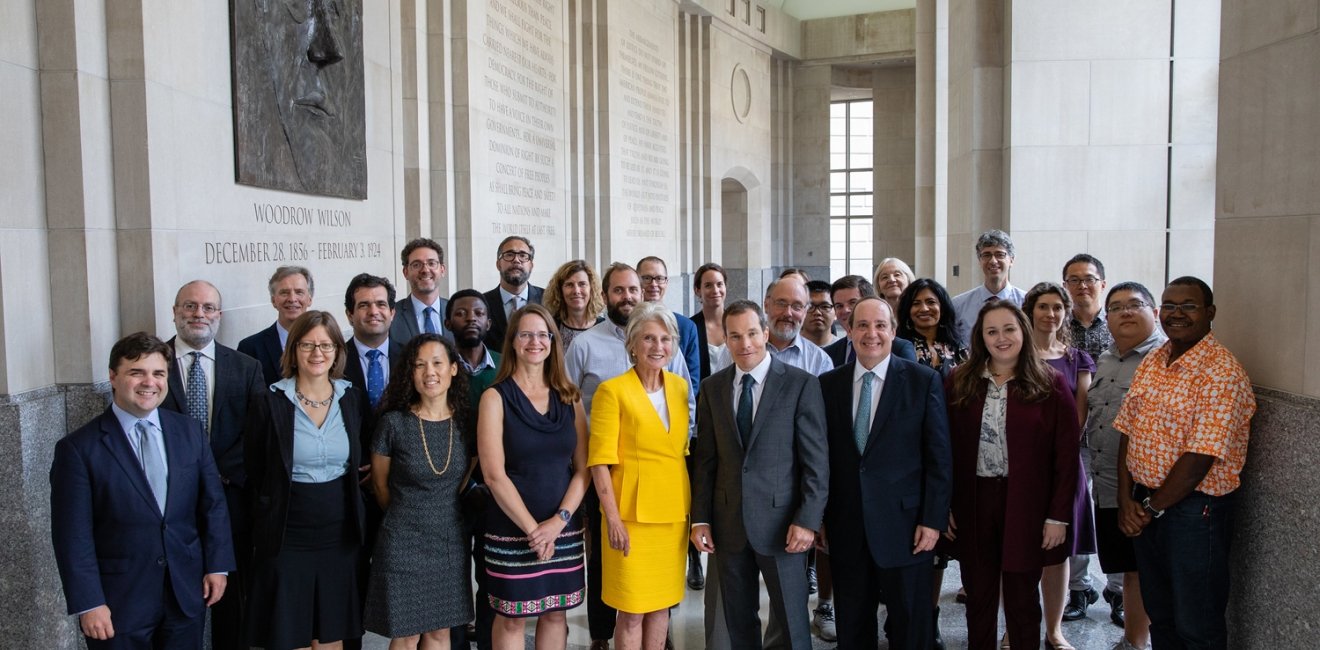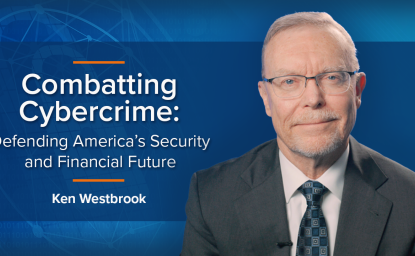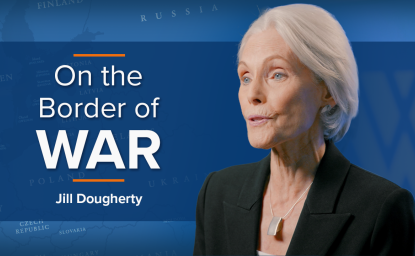WASHINGTON— Jane Harman, Director, President and CEO of the Wilson Center, is pleased to announce the members of the 2019-2020 fellowship class. The 17 fellows include scholars and practitioners from the United States, Australia, Canada, France, the United Kingdom, and Venezuela.
The 2019-2020 fellows are listed below along with the projects they will pursue while in residence at the Wilson Center.
Alexander Bick, Research Scholar, Kissinger Center for Global Affairs, Johns Hopkins School of Advanced International Studies. “Quagmire: Russia and the United States in Syria.”
Stuart Brotman, Howard Distinguished Endowed Professor of Media Management and Law and Beaman Professor of Journalism and Electronic Media, University of Tennessee, Knoxville. “U.S. Digital Data Privacy Protection at the Crossroads: Developing a Workable National Policy and Legal Framework.”
Wenhong Chen, Associate Professor of Media and Sociology, University of Texas at Austin. “Paper Tiger, Fat Dragon: A Comparative Study of US-China Policies and Practices on AI, Big Data, and Cloud Computing.”
John Dale, Associate Professor of Sociology, George Mason University. “Outsmarting Ourselves? The Digital Transformation of Human Rights.”
Christina Ewig, Professor of Public Affairs, University of Minnesota, Twin Cities. “Making Substantive Democracy: Women's and Ethnoracial Representation in Latin America.”
Michael Gordin, Professor of History, Princeton University. “The Perestroika of Global Science.”
Berenice Guyot-Rechard, Lecturer (Assistant Professor) in 20th Century International History, King's College London, United Kingdom. “Governing the Sea: Indian Ocean Geopolitics, 1945-1990.”
Willow Lung Amam, Associate Professor of Urban Studies and Planning, University of Maryland, College Park. “The Right to Suburbia: Redevelopment and Resistance on the Urban Edge.”
Allison Macfarlane, Professor of Public Policy and International Affairs, The George Washington University. “A Nuclear Solution: Reflections of a Former Regulator on the Future of Nuclear Energy.”
Michael Penfold, Professor of Political Science, Instituto de Estudios Superiores de Administración (IESA) Business and Public Policy School, Venezuela. “The Military in Hybrid Regimes: The Case of Venezuela.”
Nita Rudra, Professor of Government, Georgetown University. “Globalization and the Politics of the Informal Sector.”
Daniel Sabet, Technical Director, Social Impact. “Procurement Reform in Honduras and Latin America: Testing Three Different Approaches to Creating Accountability.”
Amy Erica Smith, Liberal Arts and Sciences Dean's Professor and Associate Professor of Political Science, Iowa State University. “Religion and Climate Change.”
Hazel Smith, Professor of International Security, School of Oriental and African Studies, University of London, United Kingdom. “North Korea: Security and Survival.”
Willard Sunderland, Professor of History, University of Cincinnati and School of Higher Economics, Moscow. “Leviathan: Russia and the World in the Age of Peter the Great.”
Richard Tomlinson, Professorial Fellow, Faculty of Architecture, Building and Planning, University of Melbourne; Visiting Professor, School of Architecture and Planning, University of the Witwatersrand, Johannesburg. “Curating Knowledge of Metropolitan Governance.”
Edward Wong, Diplomatic Correspondent, The New York Times. “The Empire Reborn: China's Rise and the Transformation of Global Power.”
Media with questions should contact Ryan McKenna at ryan.mckenna@wilsoncenter.org or by phone at (202) 691-4217
Notes to Editors
- The Wilson Center provides a strictly nonpartisan space for the worlds of policymaking and scholarship to interact. By conducting relevant and timely research and promoting dialogue from all perspectives, it works to address the critical current and emerging challenges confronting the United States and the world.



